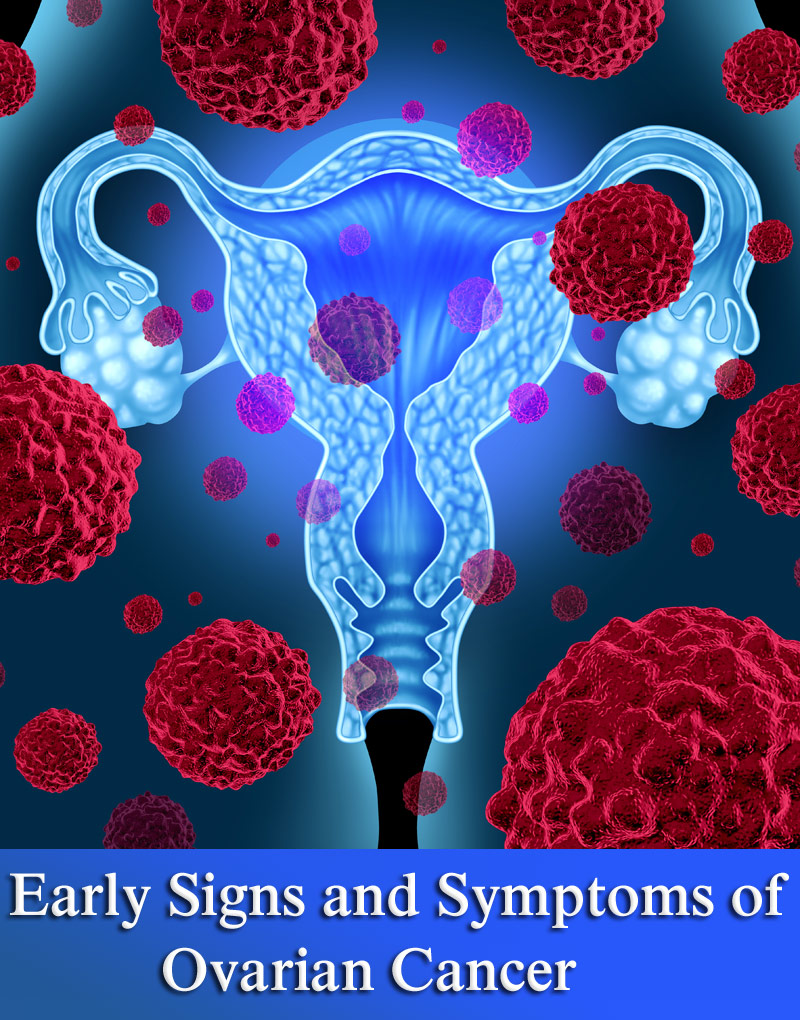
Over 20,000 women are diagnosed with ovarian cancer every year in the United States. And around 15,000 women die from it.
You will be surprised to discover that most people don’t know the symptoms of this deadly disease. They only realize something is wrong when the cancer has started taking its toll on the body.
As the name suggests, ovarian cancer forms in tissues of the ovaries but it can spread to the entire reproductive system if not discovered early. There are three types of ovarian cancer:
- ovarian epithelial cancer (most common),
- ovarian germ cell tumors, and
- ovarian low malignant potential tumors.
These different types of ovarian cancer have the same symptoms. Here are the common symptoms you should look out for.
- Bloating. When the stomach swells it means that the cancer has progressed. The stomach swells because ascites (a fluid) has been trapped in the abdominal cavity. Swelling is not a definite sign that you have ovarian cancer so make sure you get checked for other conditions.
- Pelvic or abdominal pain. Never-ending pain in the abdomen or pelvis means something is not right. This could be a sign of ovarian cancer or ovarian cysts. Make sure you get checked out if the pain lasts for more than a week.
- Trouble eating or feeling full quickly. Ovarian cancer makes women feel full faster. This is caused by swelling and disruption of hormones.
- Urinary symptoms such as urgency (always feeling like you have to go) or frequency (having to go often). The average person urinates 7-8 times a day. So you should be wary if you urinate more than that, especially if you don’t drink a lot of beverages.
These symptoms are also commonly caused by benign (non-cancerous) diseases and by cancers of other organs. When they are caused by ovarian cancer, they tend to be persistent and represent a change from normal − for example, they occur more often or are more severe. If a woman has these symptoms more than 12 times a month, she should see her doctor, preferably a gynecologist.
Others symptoms of ovarian cancer can include:
- Fatigue
- Upset stomach
- Back pain
- Pain during sex
- Constipation
- Menstrual changes
- Abdominal swelling with weight loss
However, these symptoms are more likely to be caused by other conditions, and most of them occur just about as often in women who don’t have ovarian cancer.
It’s much easier to treat ovarian cancer when your doctor diagnoses it in the early stages. However, it’s not easy to detect. Your ovaries are situated deep within the abdominal cavity, so you’re unlikely to feel a tumor. There’s no routine diagnostic screening available for ovarian cancer. That’s why it’s so important for you to report unusual or persistent symptoms to your doctor. The survival rate is higher than 90 percent when the cancer is found early and treated right away.





Leave a Reply